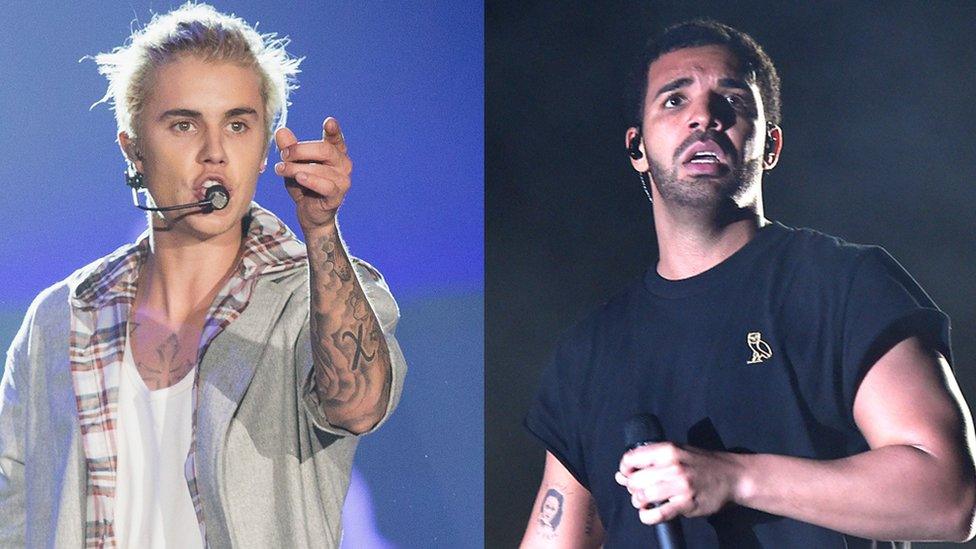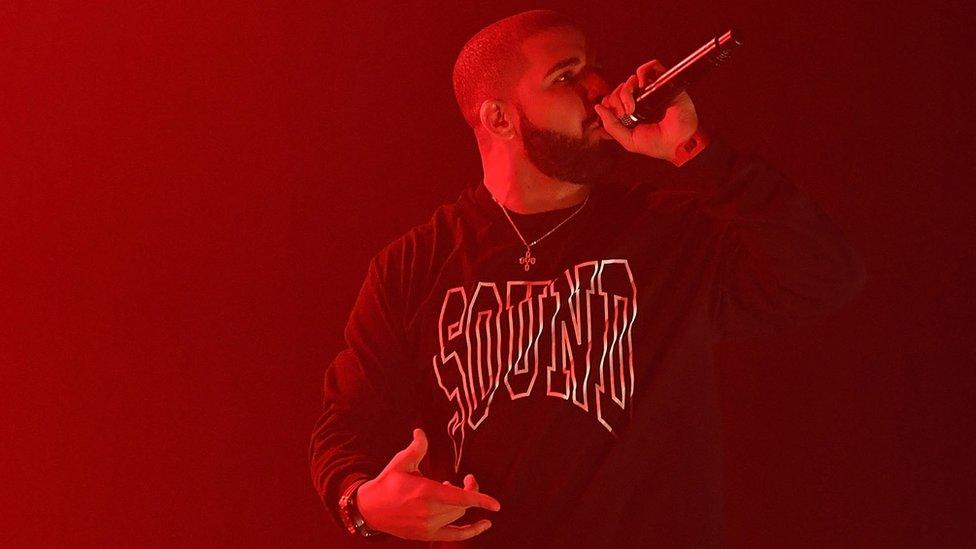Justin Bieber pours 'Cold Water' on Drake's chart run
- Published

Justin Bieber and Drake are both hugely successful on streaming sites like Spotify, Deezer and Apple Music
Bryan Adams has retained his record for the most consecutive weeks at number one, after Drake was finally dislodged from the top of the UK singles chart.
Drake's One Dance has tumbled to number five, pushed aside by Justin Bieber's latest single, Cold Water.
Bieber's song is a collaboration with dance acts Major Lazer and MØ, whose 2015 hit Lean On is Spotify's most-streamed song of all time.
"We are amazed at the support from the UK," Major Lazer said in a statement.
Cold Water racked up 102,000 combined sales (comprising 47,000 downloads and 5.6 million streams) - almost double the number Drake achieved last week, in his fifteenth and final week at number one.
Adams' Everything I Do (I Do It For You) remains the UK's longest-running number one, having spent 16 weeks at the top in 1991.
Only Frankie Laine's I Believe has managed longer - 18 weeks - but that total was achieved over three separate spells in pole position.
Chart concerns
The success of Drake's single was bolstered by its popularity on streaming sites, which allowed it to remain number one even when it fell to 14 in the "pure" sales chart.
His dominance raised questions about the way the charts are calculated, as songs that achieve popularity on Spotify, Apple Music and other streaming services linger in the Top 40 at the expense of new music.
This week is no exception. Apart from Bieber's single, there is only one new entry in the chart - by former Rudimental singer Anne-Marie, whose new song Alarm debuts at number 32.
On average, the songs in this week's Top 40 have been on the chart for 14 weeks each. Ten years ago, the average was 5 weeks.

See the UK Top 40 singles chart
See the UK Top 40 albums chart
BBC Radio 1's Official Chart Show

Earlier this week, BBC Radio 1's head of music, Chris Price, suggested some music streamed from playlists, such as Spotify's "United Kingdom Top 50, external", should be excluded from the chart because they become self-perpetuating.
"Since the chart itself has such a massive impact on consumption, streaming editorial is being counted once when users discover music via playlists, and then many times more as later-adopting listeners discover them in the chart," he told trade paper Music Week.
The Official Charts, which compiles the weekly top 40, said its rules were constantly under review but defended the inclusion of streaming data.
"The industry is in a transitional period between the old-world sales model and new-world rental model," said managing director Martin Talbot.
"It is fundamental to ensure the chart continues to reflect the way music is consumed."

Follow us on Twitter @BBCNewsEnts, external, on Instagram at bbcnewsents, external, or email entertainment.news@bbc.co.uk, external.

- Published22 July 2016

- Published17 July 2016

- Published29 July 2016
